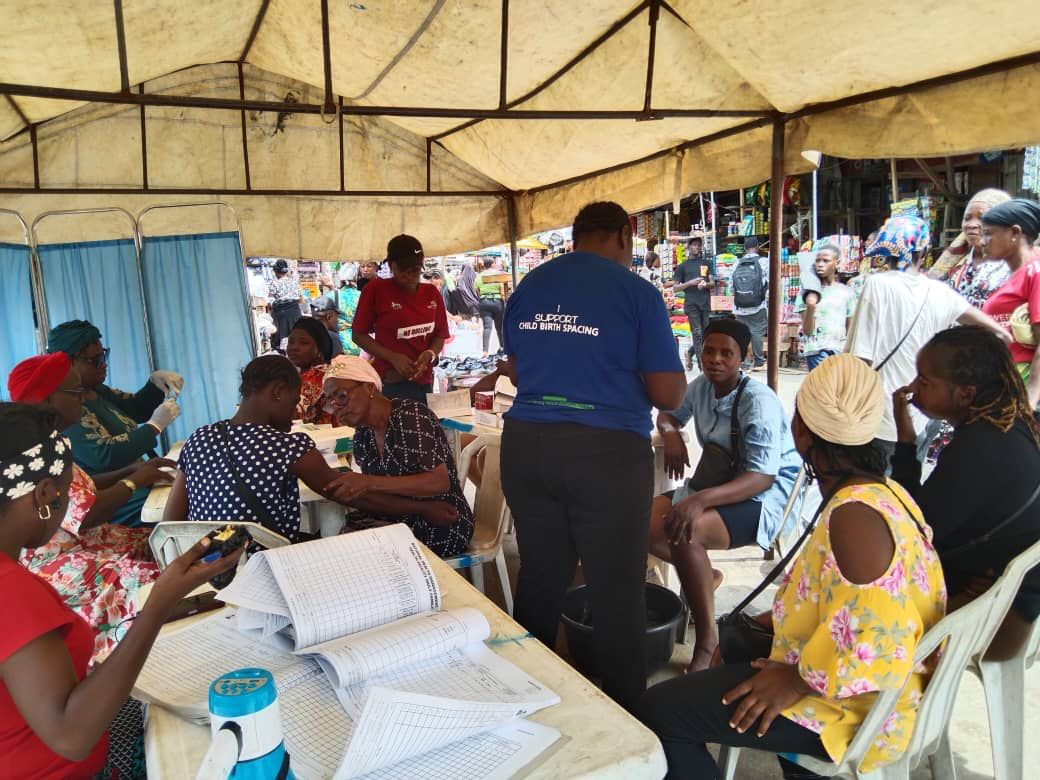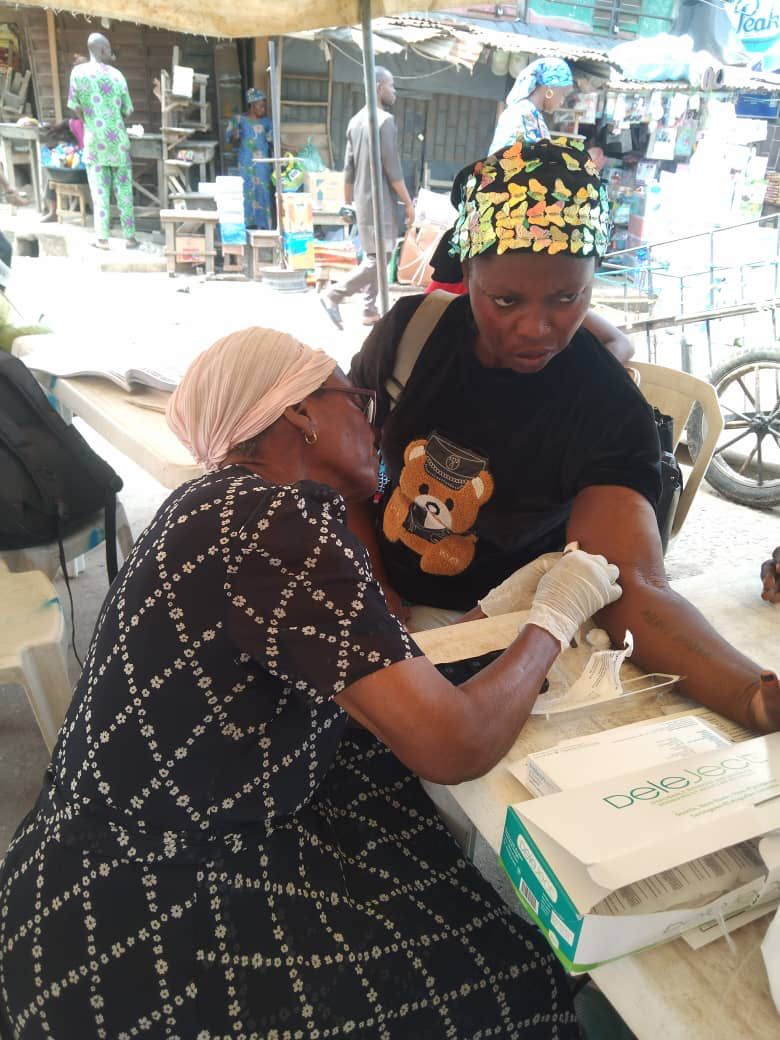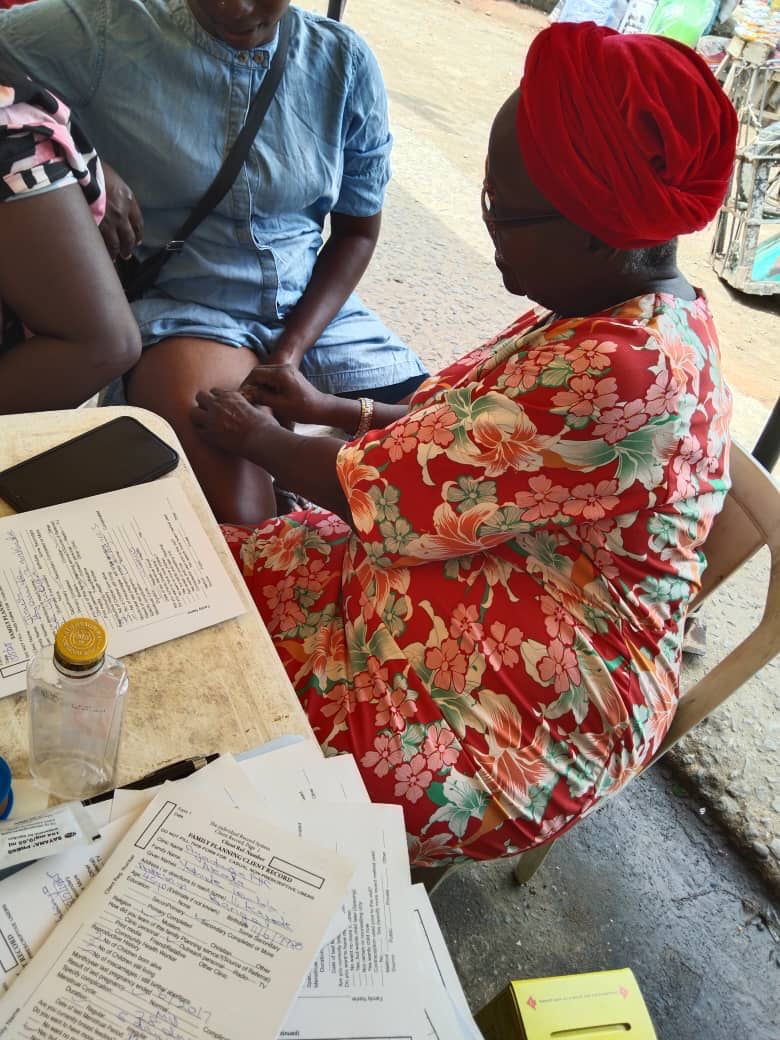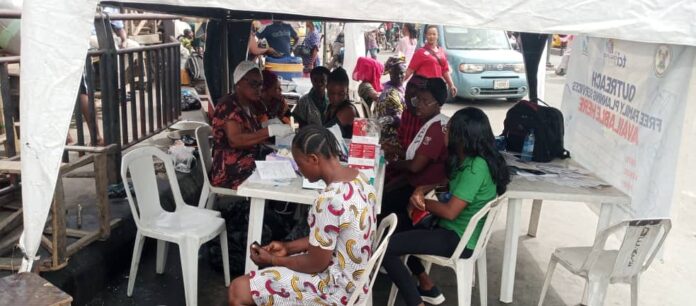A recent family planning outreach held at Ojuwoye Market, Mushin, Lagos, has recorded impressive turnout and participation from community members, with dozens of men and women accessing various contraceptive methods and receiving reproductive health education.
The outreach, led by The Challenge Initiative (TCI) in partnership with local health facilities, aimed boost public awareness about family planning services.
Speaking at the outreach, Mobiliser Kike Folashade emphasized the importance of consistent sensitization in driving community engagement. “Sensitization has really helped. More people are now informed, even though some are still ashamed to access services openly because they fear their peers will see them,” she explained. “Despite that, we’ve noticed that the number of people coming to the facility is increasing every day.”

Health workers provided on-the-spot family planning services including injectables (Depo), implants, intrauterine devices (IUDs), male and female condoms, oral contraceptive tablets, and syanin press. The community was also educated on the different methods available, their benefits, and potential side effects.
Olayinka Idiode, another mobilizer at the outreach, noted that all services were available and accessible to the public. “People received syanin press, tablets, condoms, Depo, and implants. It’s important for people to know that family planning not only benefits mothers, but also helps the family, community, and country at large,” she said.
The outreach witnessed the active participation of both men and women, with men collecting condoms and showing support for the initiative.

Service provider Monsurat Ibrahim highlighted the positive shift in community perception towards family planning. “The reception has really improved. People now understand the need to limit the number of children they have,” she stated. “In fact, most people already know the methods before they come, and some even visit just to renew their doses.”
To accommodate individuals who may feel shy or stigmatized, the team introduced an innovative solution. Discreet “Go cards” were provided to individuals who wished to access the services later at health facilities without revealing their participation during the outreach. This move, according to organizers, has helped bridge gaps in service delivery and encouraged more people to seek care.
The outreach also tackled barriers to access such as religious and societal beliefs, which often discourage public participation in family planning programs. Health workers stressed that the initiative was not to force decisions, but to inform and empower families to make healthier choices.
TCI’s continued partnership with community health structures and mobilizers has strengthened local trust and improved awareness across neighborhoods like Mushin.

The success of the Ojuwoye Market outreach signals a promising shift in attitudes toward reproductive health in communities. Organizers say similar initiatives will continue across Lagos to ensure that more families have access to safe, reliable, and stigma-free family planning options.








